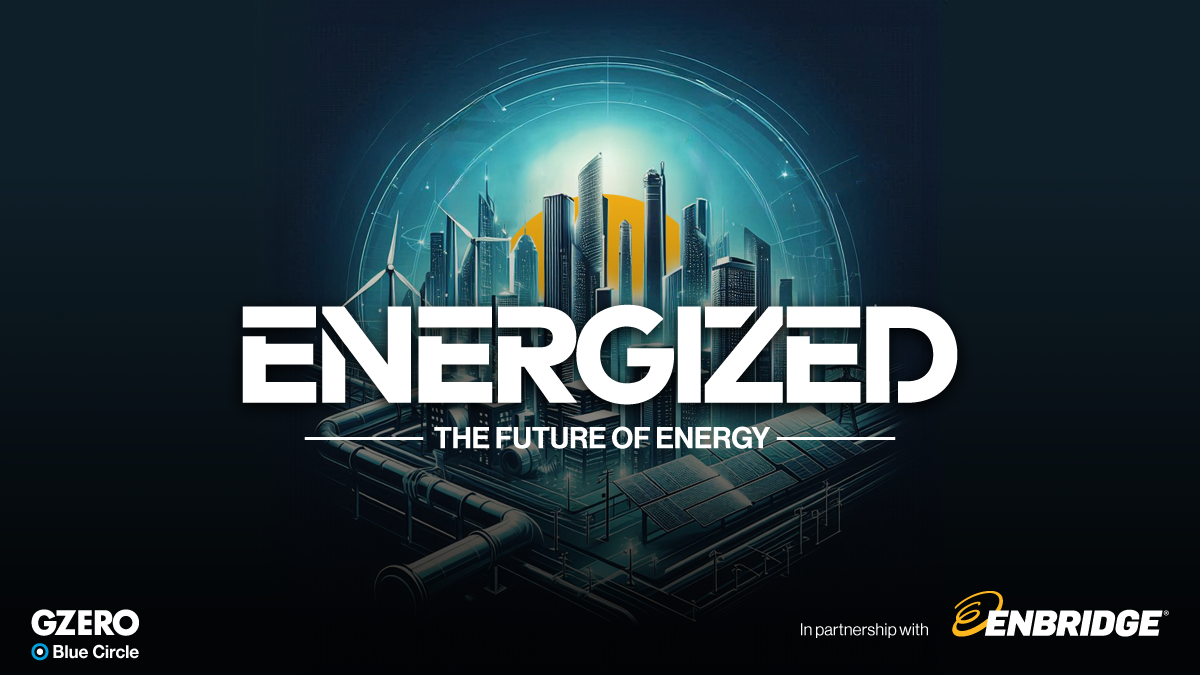In our rapidly changing world, the critical role of energy is constantly evolving. Global energy investment continues to rise, with investment in low carbon fuels and renewables growing rapidly. Competing needs like affordability, energy security, and cleaner, more sustainable options make it hard to know what the future of energy will look like in the short or long term.
That’s why we’re diving into the biggest ideas about the current energy transition to learn where we’re going, and how it will impact geopolitics, the economy, and your bottom line. We’ll explore all those topics on “Energized: The Future of Energy”, a new five-part podcast series from GZERO Media's Blue Circle Studios and Enbridge premiering on Thursday, September 5th.
On each episode, host JJ Ramberg will be joined by Enbridge CEO Greg Ebel along with some of the top experts in the industry, including Pulitzer prize-winning author Daniel Yergin, former Canadian Member of Parliament Lisa Raitt, and former Ohio Congressman Tim Ryan. We’ll also talk about how technology is changing the game, and the diverse partners and Indigenous communities that are shaping the future of energy. This series is a must-listen for anyone interested in the next phase of the energy transition.
Listen on Apple, Spotify, Goodpods, or wherever you get your podcasts. New episodes will be published every other Thursday.
- Pulitzer Prize-winning author Daniel Yergin on energy security in a changing world - GZERO Media ›
- Can we keep energy affordable, safe, and secure? - GZERO Media ›
- From AI to Food Recycling: Innovations transforming the Energy Sector - GZERO Media ›
- Partnering for the future: Indigenous communities and energy transition - GZERO Media ›
- What role does natural gas play in a clean energy transition? - GZERO Media ›

